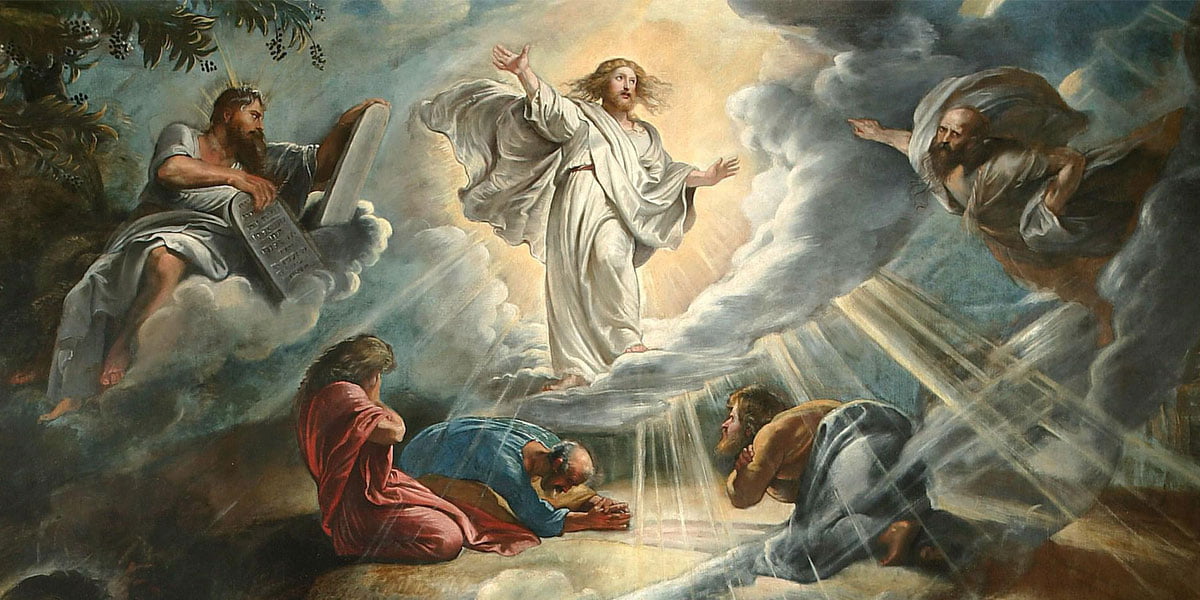The question Jesus asks his disciples is a central question in all of human history: "Who do you say that I am?' The thing about that question is that we, as people, must do something with Jesus of Nazareth. Once he has appeared in our consciousness, once we know of him, then something must be done with him. There is no getting around it. It's the same with everyone, of course. Once you know of someone, then the question will always be 'who are they?' But that question doesn't typically come with as high of stakes.
With Jesus, the question that is being asked is about not just 'who am I' in terms of his job, or his family, or that kind of thing. Rather, who really is Jesus Christ? And that question must be answered - is he who he says he is?
Well, when Simon Peter answered that question, he did so by saying that there was a variety of answers, John the Baptist, Elijah, a prophet, standard stuff. Jesus presses harder, though, saying 'not all of them, but you, who do you say that I am?' Peter gives the correct answer: 'You are the Christ!' That is true.
But the next question is going to be to ask what on earth is the Christ? I mean, yes, it is the answer that Jesus was looking for, to say that he is the Christ, but what is the Christ? Honestly, even though Jesus knows that Peter is correct, he's going to go to the effort of letting Peter know what it means to be the Christ. The next few verses have Jesus talking about what it means to be the Christ, talking about how he is going to have to be forsaken, beaten, betrayed, abandoned, and killed. Peter takes Jesus aside to rebuke him, letting him know that these are things that Peter finds offensive for the Christ to do 'Never, Lord, never let this happen to you!' Sure, sure.
What Peter was missing, though, is that criticizing Jesus on this point isn't just wrong (which it is), it is making a categorical error. That is, Peter can't say that Jesus mustn't go to the cross, because that's the essential component of what it means to be the messiah. You can't say to Jesus that he is the Christ, the Messiah, and then say that he can't go to the cross, because you may as well say 'I want a fish that has four feet and walks on land.' Surely, you can have that thing, but it will no longer be a fish. Surely, you can have someone who is a great moral teacher, a leader, a preacher, an ethically good man.
But that person will not be the Messiah.
It is the province of Jesus to be the Messiah, he who bears the cross for the salvation of the world. And to answer the question of who Jesus is without the cross is to fundamentally misunderstand who Jesus is. And so when that question gets asked to us all, as it does, we have to view who we say Jesus is through the lens of the cross. It honestly has to start there, because the cross is the moment around which everything else turns. If the cross is unimportant, if it isn't a real issue, or pressing concern, then Jesus isn't anything overly special. He isn't a unique person, a standard in the dark, a light on the hill or a fire in the darkness. He's just a man.
But if the cross is crucial, if it is the central moment, the greatest issue in humanity, then you absolutely, fundamentally cannot have the Messiah without it. To be the Messiah is to redeem humanity. To redeem humanity is to shed blood for it, to die for it, to leave heaven and paradise to walk the cross to Golgotha and to die upon it. And in Lent, we get away from our desire to sanitize, to massage out the misery of the cross and death of Christ. In Lent, we see the hideousness of the cross and his execution, and we understand that it isn't peripheral to the story of Christ, it is the story of Christ. We preach Christ crucified, a stumbling block to Jews, and folly to Gentiles, but to those of us who are being saved, it is the power of God.
That's the story right there, folks. And in Lent, everything else simply melts away. Every other layer that we place upon him is gone, like mist in the morning. All our efforts to make him into something other than what he is, those efforts are exposed for what they are - the things of man not the things of God. The things of God are to save us, which is why he takes up the cross, to save and redeem a people whom he loves.





